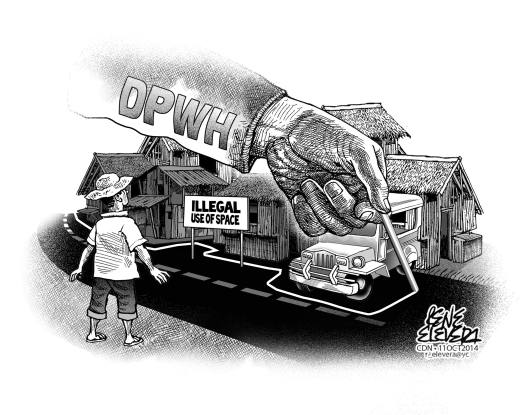Road sharing proponents may want to cheer on learning about this bit of news.
It may have been an oversight but Metro Cebu local government units (LGUs) forgot about Presidential Decree 17 of the National Highways Act that prohibits pay parking on national roads.
The warning issued last Thursday by the Department of Public Works and Highways (DPWH) for LGUs to repeal the ordinances lest they face charges in court was contradicted by the Cebu City Traffic Operations Management (Citom) which pointed to a city ordinance passed in the 90s.
The ordinance which Citom executive director Rafael Yap says is based on the Local Government Code (also passed during the 90s) allowing the city government to charge parking fees on roads even if it was built by the national government.
Among those tagged by the DPWH as violating PD 17 are Fuente Osmeña Circle and V. Rama Avenue where there is a car wash outlet that had customers lining up their vehicles along the national road, congesting both vehicular and commuter traffic.
The DPWH, along with the Philippine National Police, transport agencies like the Land Transportation Office and the Metro Cebu LGUs supposedly launched a campaign to clear the national roads of these outlets as well as other businesses that extend their services beyond their allocated space and along the portion of a national road.
In that respect, they’re no different and are even worse than the vendors who crowd the sidewalks and spread themselves along the sides of the roads, trapping both passenger jeepneys and motorists in traffic gridlock.
When told about this development, Cebu City Mayor Michael Rama responded by asking why the DPWH failed to inform them about this prohibition in the first place.
Either he conveniently forgot or Rama wasn’t informed that the DPWH sent a letter to a Cebu City Hall office reminding them of this oversight last December. Road share proponents may also include pay parking as one of their findings in last month’s experiment that aggravated both commuters and motorists alike.
In any case the cities of Cebu, Mandaue and Talisay face both a tough legal challenge and a requirement from the DPWH to repeal their pay parking ordinances and ban businesses whose services encroach so to speak on national roads which the agency said is intended for both motorists and commuters alike.
This can be compared to what the Cebu City and Mandaue City governments are doing with settlers found encroaching on the three-meter easement of the Mahiga Creek area.
Except that they’re dealing more with entrepreneurs whose businesses are robbing commuters of their share of the road. It’s time for these Metro Cebu LGUs to rectify that mistake.
